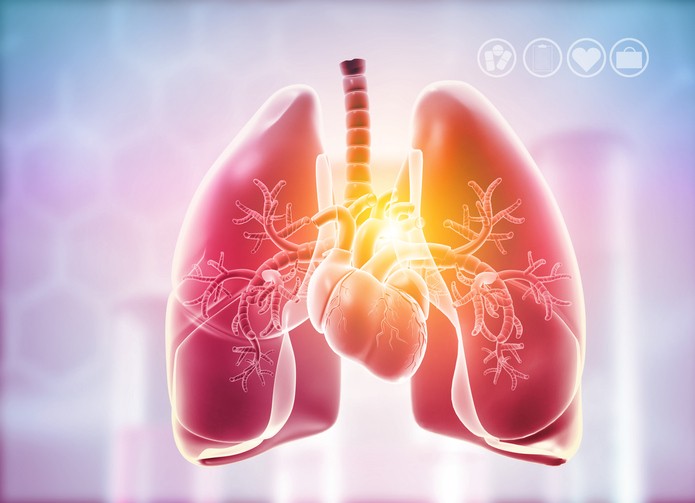The preliminary results of the study have been published on the portal preprints.org and have yet to go through peer review. But the study, conducted by researchers from Maastricht University and Canisius-Wilhelmina Hospital in Nijmegen, included experts who have studied the effects of vitamin K2 for many years.
Clear link between low vitamin K and worse outcomes
“The study represents an amazing finding,” said Leon Schurgers, PhD, who is a professor of the biochemistry of vascular calcification and vice chair of biochemistry at the Cardiovascular Research Institute Maastricht (CARIM), Maastricht University, and co-author of the study. “While we do not suggest vitamin K2 is a treatment for COVID-19, this study illustrates that a poor vitamin K status – deduced from low dp-ucMGP levels – is linked to poor prognosis. Thus, hypothesizing that improving vitamin K2 status is linked to better health outcomes including cardiovascular, and perhaps even lung health.”
Vitamin K has been thought of as the ‘coagulation’ vitamin for many years, hence Schurgers’ early interest in the substance. But subsequent research, supported by Norwegian K2 supplier Nattopharma, has resulted in 19 published studies over a 16 year period looking into the effect of MenaQ7 (Nattopharma’s branded form of the ingredient) on measures of cardiovascular and bone health. The vitamin, via the proteins that it can activate, has been shown to have a critical role in the mobilization of calcium into and out of the bones.
Schurgers’ team used blood analysis to test for vitamin K status, and did so by measuring desphospho-uncarboxylated matrix Gla protein (dp-ucMGP; inversely related to vitamin K status) and the rate of elastin degradation by measuring desmosine.
Elastin in a protein that forms a key part of connective tissue, in the skin, the lungs and elsewhere. A 2019 study done in Belgium has shown that low vitamin K status is associated with increased elastin degradation patients suffering from chronic obstructive pulmonary disease (COPD).
COVID-19 can cause breathing problems because of the degradation of lung tissue. As health care professionals gain more experience with the disease other problems have cropped up, too, including heart damage and dysregulation of the body’s blood coagulation ability which can lead to clots which block blood vessels.
The Belgian COPD suggests that accelerated use of vitamin K stores in the body may also be a potential reason for vitamin K deficiency in patients with severe COVID-19, as opposed to them having a low vitamin K status to begin with.
Study used blood drawn from admitted patients
The Dutch study analyzed blood from 123 patients admitted to the hospital in Nijmegen who were treated with COVID-19 and matched those against blood from 184 controls. The researchers tracked the patients to one of three outcomes: discharge from the hospital, 2) admission to the intensive care unit (ICU) for intubation and mechanical ventilation, or 3) death. Patients who were released form the hospital were classified has having ‘good’ outcomes; the other two groups fell into the ‘bad’ category.
Their measurements showed that dp-ucMGP was significantly lower in COVID-19 patients compared to controls, and dp-ucMGP levels were significantly lower in COVID-19 patients who fell into the bad group. And low dp-ucMGP levels were significantly correlated with desmosine levels. Measuring desmosine, a product of the breakdown of elastin, has been shown as a valid biomarker for lung health status.
The researchers found that deficiency of vitamin K might be suspected to be associated with worse COVID-19 outcomes, given that patients with severe COVID-19 are more likely to have comorbidities such as diabetes type 2, hypertension, and cardiovascular diseases, which are associated with reduced vitamin K status.
More research needed to establish mechanistic link
In the current pandemic climate many consumers are prone to grasp at any product that can claim some sort of potential health benefit. The Dutch researchers cautioned that more research needs to be done before any mechanistic link between low vitamin K status and better COVID-19 outcomes could be firmly established.
“It might be tempting to speculate that vitamin K administration has an improving effect on vitamin K status in severe COVID-19 patients; however, this has never been studied in this patient group. Additionally, whether improving vitamin K status would correlate with better prognosis in SARS-CoV-2-infected individuals has to be tested,” they write. “Preliminary evidence was provided suggesting a potential mechanistic link between reduced vitamin K status and accelerated tissue degradation. An intervention trial is now needed to assess whether vitamin K administration improves outcome in patients with COVID-19.”
“Supplementation of vitamin K increases the vitamin K status in the body as measured by the level of active vitamin K-dependent proteins, and vitamin K2 is clearly the best form of vitamin K due to its superior bioactivity. MGP is the most potent known inhibitor of vascular calcification to date. MGP is a K-dependent protein already present in the body, but it needs adequate vitamin K2 to be activated to perform its function,” said Dr Hogne Vik, MD, Nattopharma’s chief medical officer.
Fuente: NutraIngredents-USA

